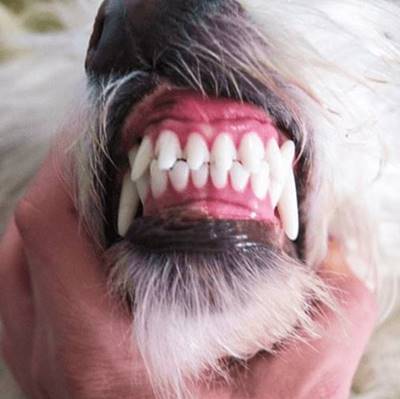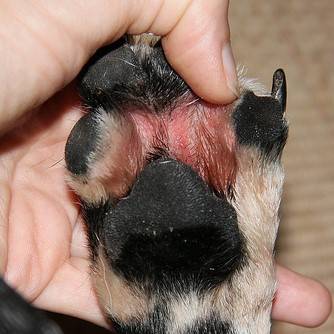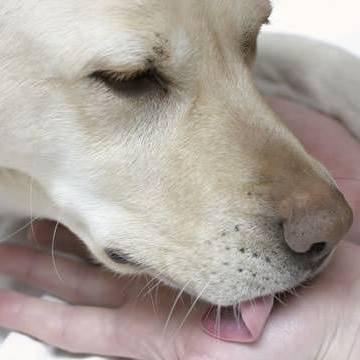5 Tips to Keep Your Dog Flea-Free
by dogtoyadvisor | Last updated on November 18, 2020
We only review products we tested ourselves. We have affiliate partnerships, so we get a share of the revenue from your purchase.

Parasites are a headache for both our dogs and us. Having a flee-ridden dog may sound like something only a neglectful owner would get but, in fact, it can happen to just about anyone.
With parasites becoming more resistant to most available solutions, it’s not uncommon to come home and find fleas or ticks on their fur or between the fingers when we’re cleaning them.
The consequences of your dog having parasites can be from mild to life-threatening, depending on how you act.
The best way to keep your dog protected is to make sure you follow a simple plan consistently, because that means he will never be unprotected.
Tip 1 – Get Him To The Vet
Weak or sick dogs are more prone to get fleas and other parasites that prey on weakened animals.
Keeping his health in check with a vet visit is always a good idea, particularly in the summer, when they tend to be outdoors more often and parasites thrive with the heat.
Make sure your dog’s vaccines are in order and that he’s strong enough to deal with anything that comes his way.
Tip 2 – Get Him The Right Treatment
The best way to go about knowing what’s best for your dog is to asking your vet. You should always know his weight and any allergies he may have.
There are several great options to stave off fleas, ticks and other external parasites. You have the flea-collars, the pipettes, pills, sprays, shampoos, etc.
Throughout the years, we’ve tried most options and here’s what we’ve found.
Flea and tick collars
Our dogs use one all year long. We prefer Seresto, because Dobby has had a few allergies with others (that was scary, luckily nothing that a good bath and a bit of milk didn’t solve).
These collars last for months and are supposed to be the best option to keep of mosquitoes that may carry leishmaniasis away.
Pipettes
This is the most common option, you just need to apply a pipette on your dog’s back every month to keep him protected.
Where we live, the summers are so hot and the fleas and ticks so resistant, we usually use both the collar and a pipette to protect our dogs.
We use Bayer’s Advantix.
Please be careful not to use this on cats nor let them anywhere near it.
Shampoos
Shampoos are a must have for most parasitic or bacterial skin infections for dogs.
Particularly if your dog has a nasty flea allergy, you’ll want something to calm that itch and heal the skin while cleaning those nasty flea waste.
The one we use can be combined with any flea treatment, just don’t use it on puppies under 12 months of age.
Dewormers
Your dog should be dewormed every three months to make sure he stays protected.
Internal parasites like Tapeworms, Roundworms, Hookworms, and Whipworms can make your dog really sick and even endanger their lives.
Most of the dewormers we’ve tried were pills, then we found Safeguard granules.
Granules work great for us, we can deworm out pets without them noticing, though there are a few palatable pills that may also be an option.
Tip 3 – Clean Your Home
Flea eggs can last up to 6 months without hatching.
This means that if you get a flea infestation in your home and your pets, if you don’t clean your home properly, odds are you’ll get a new infestation again.
But you’ll need to keep your pets in mind when choosing the right product to clean your home with. We use this one, it’s safe for our pets and it really works!
Tip 4 – Clean His Paws and Coat
If you allow your dog in your sofa or your bed, odds are you’re already doing this.
Cleaning your dog’s paws and coat whenever he gets home can make all the difference in spotting parasites before they become a bigger issue.
And, if you want to be really thorough, there are wipes made for this exact purpose:
Tip 5 – Choose Where to Walk Him Carefully
Though Fleas and Ticks thrive in the heat and can be just about anywhere, there is no point on making it easy for them to contaminate your pet and your home.
Avoid unkept patches of grass or tall grass.
The best place to walk or play with your dog in during the summer is dirt. Water is always a good idea too, you won’t find fleas or ticks swimming.
If you’re really determined on keeping fleas and ticks away from your dog, you may want to avoid the dog park as well.
Places crowded with other dogs will most likely have a few parasites lying around.
Conclusion
Overall, parasites don’t need to be an issue in your life, you don’t need to change your routine or keep your dog from playing or socializing to prevent them.
If you follow our tips and keep your dog protected at all times, all year round, he will be more than ready to lead a free, happy life, without a parasite in sight.
Affiliate links / Images from Amazon Product Advertising
Recommending Reading:












0 Comments